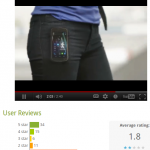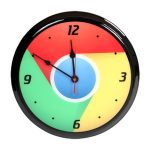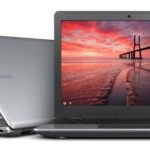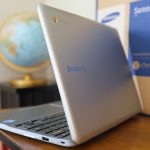Microsoft gives back to Android, but users say 'no thanks'

Thanks to some smart lawyering or perhaps fears CEO Steve Ballmer will show up unannounced, Microsoft has negotiated envious patent fee payments from nearly all major Android licensees. So there's something fitting about the software giant giving a little something back to Android, by way of an exclusive app -- well for now -- on{X}. Or perhaps it's a Trojan Horse to undo Android phones, chopping up performance or draining battery life. Or maybe Microsoft sees Android users as easy beta testers, considering the more rigorous standards for getting into Apple's App Store than Google Play.
One thing is certain: Early on{X} users despise the app, which has some of the worst reviews you'll see at Google Play. As I post, the app has average rating of 1.8 stars out of five. Among the 244 reviewers, 178 give the app a single star. Ouch! I had planned to grab this one, which is available in beta, but skipped after seeing the scathing response.
Would US consumers choose iPad mini over Kindle Fire?

Rarely does a ChangeWave consumer buying survey offer so many intriguing topic possibilities. Interest in Kindle Fire has collapsed, only 7 percent of respondents plan to purchase a new tablet within 90 days, those buying overwhelmingly choose iPad, but interest in a smaller Apple tablet is fairly modest.
Buying intention surveys are often misleading. What people would like to do often isn't what they will when time comes to pay up. With that caveat, the survey -- 2,893 consumers last month -- bodes ill for Kindle Fire or prospective iPad mini. In November, 22 percent of respondents said they would buy Kindle Fire, but only 8 percent in May. Meanwhile a mere 3 percent of respondents would very likely buy iPad mini.
Free track listens exceed all song sales by 10 times [infographic]
Music software developer Freemake dropped an intriguing infographic in my inbox this morning, claiming most people won't pay for music next year. Heck, who does today, I ask.
My daughter has a music library with more than 7,000 songs, but she now just streams Pandora on her iPhone to connected speakers. She hasn't listened to anything from her own library for months. She pays zero. I'm a big fan of Vevo. I don't often have time to watch music videos, but I can listen to them streaming in the background.
Meebo merger will create ad space for Google+

Do you use Meebo? Will you switch to Google+? Think hard before you answer, because Google is buying Meebo, the companies disclosed late today. The Meebo team, and presumably technology, will move to Google+, just as the social network's year anniversary approaches. (Whoa, has it been that long already?)
I remember Meebo, which launched in 2005, for its socially-oriented messaging client, which didn't stick to my online habits. More recently the company is better known for the Meebo Bar, which adorns tens of thousands of websites. I signed up two years ago and quickly gave it up. Meebo isn't alone producing this kind of website shtick, and I can only hope Google doesn't make Plus negative by adopting any similar menu bar motif.
Android isn't in trouble

Asymco's Horace Dediu asks an interesting question today: "Trouble with the Robot?" -- referring to Android. He hones in on two seemingly convergent trends: a slight sequential dip in US Android share and sharp decline in US subscribers switching from feature phones to smartphones.
Based on his analysis of April data, iPhone sales remain fairly constant, while Android disproportionally declines. "Broken out by platforms, we see signs that the slowing in smartphone growth seems to be attributable to a slowing in Android adoption", Dediu explains. Stated differently, referring to comScore data he adds: "We see the lowest user growth for Android since 2009". The easy interpretation -- Android is now declining before iPhone -- would be wrong.
Okay, Americans, Samsung Galaxy S III preorders start this week from major carriers

If you're ogling Galaxy S III and thinking "I want", perhaps you should be asking "i what?" Galaxy S III arrives on these shores from all major carriers this month. As for iPhone 4S, well, whatever. Preorders start tomorrow (from Sprint, T-Mobile); June 6 (from Verizon).
But to get lower-cost, subsidized US models, many buyers will gain in network connectivity but lose in raw processing power. US models, also from AT&T, Sprint and US Cellular, are dual-core -- not the quad-core beauts shipping overseas. To get one those babies, unlocked, expect to plunk down at least $650. US, locked, contractual commitment S3s start at $199.99.
I'm still confused about Asus Open Cloud Computing

Computex is underway in Taipei, and Asus has a slew of mobile announcements we'll get to in other posts today. I'm scratching my head trying to grok the computer maker's cloud strategy, which looks good in this video but far removed from the reality I live in, or you. It's an idealized future of everywhere sync and help holograms that's more Star Trek than today's tech.
But the concept has meaning, and so there's no misunderstanding: Windows 8 plays an important role in Asus' cloud strategy. Microsoft issued Windows 8 Release Preview on May 31 and anticipates new PCs shipping with gold code for the holidays.
Techies, June will be the most amazing month EVER

Save your greenbacks now. During these thirty days you'll hear about lots of innovative and imitative products coming for the holidays. There's no coal in Santa's stocking this year, just too much tech to fit your gift list.
Not since the late 1990s, when seemingly every day some vendor announced a new PC that was ever-so-better than the one you bought the week before, is there so much new tech coming so close together. The cloud connected-device era ushers in a storm of tech. Save up now so you don't break the bank account or exceed credit card limits later.
Confused yet? NetApps ranks Internet Explorer No. 1 (Microsoft agrees), but StatCounter puts Chrome tops (Google agrees)

The battle of the browsers reached new territory in May, as IE and Chrome directly engaged for the first time. Firefox is collateral damage -- destined to fall to No. 3, whether by Net Applications' or StatCounter's reckoning. Mozilla's open-source champion that took back the web from Microsoft, falls before Chrome's advances. The browser wars are back with a vengeance and the heretofore top two are in retreat. Well, depending on whose counting you believe.
While the top browser, as measured by usage share, may be disputed, Firefox's decline is not. StatCounter put Chrome ahead of Firefox last summer. NetApps has the Mozilla browser and Chrome in a May photo finish -- 19.71 percent and 19.58 percent share, respectively. Given the downward and upward trajectories of both, Google's browser is all but certain to claim second place during June. Firefox's decline is all but inevitable -- that despite Mozilla adopting similar fast-track development that sets both browsers' apart from slow-updating Internet Explorer and Safari.
Most of you use Google Chrome

On June 1, Net Applications and StatCounter will release browser usage share for May. But why wait? Ten days ago I asked which is your preferred primary browser. You answered, and Chrome takes the crown, followed by Firefox and Internet Explorer. The days of IE dominance are over. No wonder the European Union is crawling down Google's throat over search.
The poll results are fairly consistent with those from one conducted last year, even though the sample size is smaller, 1,160 as I write. I asked: "Which is your preferred primary web browser, meaning when you can choose it? (For personal computer, not phone or other device.)" The idea is to gauge browser usage based on what people would choose, pushing aside what they might be compelled to use at work. A stunning 46.72 percent of respondents choose Chrome, 25 percent Firefox and 20.4 percent Internet Explorer.
Send us your Windows 8 Release Preview review

We told you the software was coming, and it's here and available to download right now. In fact, Microsoft dropped Windows 8 Release Preview earlier than promised. That makes the final public test build a sudden surprise to close out May and foreshadows that gold code will drop this summer in time for a splashy autumn launch. Welcome Windows 8.
Release Preview is Microsoft's fancy consumer-friendly name for release candidate, and it wasn't the only one dropped today: .NET 4.5, Visual Studio 2012 and Windows Server 2012 are also available. But for sure the immediate excitement is Windows 8, which is one reason we'd like your review. Sure we could review the Release Preview and likely will. But your contribution has special meaning, and will more reflect the kind of computer enthusiasts, IT admins or software developers that will evaluate Windows 8 Release Preview.
Samsung Series 5 550 Chromebook is good enough for you

I enjoyed occasional point-counterpoints with Scott Fulton when we worked together at BetaNews. Unexpectedly, I find myself in position to rebut him working somewhere else. It's something I rarely do, but in this case must. Scott's "Why the new Chromebook still doesn't cut it" asks but fails to answer many questions -- it's a FUD (fear, uncertainty and doubt) piece. Clearly from those questions, and most everything else about the post, Scott hasn't used the new Chromebook Google and Samsung launched two days ago. Had he, no reporter of his vintage and experience could so dismiss the laptop in such manner.
The first question Scott should have asked: Why do so many tech writers who last year dissed Chromebook praise its successor? CNET's Scott Stein doesn't love the Chrome OS followup, but most other tech writers heap praise -- and for a reason. Samsung Series 5 550 Chromebook is good enough for everyday computing. Most "actual consumers and businesses", as Scott describes them, will find the computing experience satisfying, though I wouldn't say that Chromebook is for everyone. But it could be for most anyone, with caveat really being Microsoft Office. Do you require it? The answer will be yes for businesses dependent on back-end Microsoft server software leveraging Office on the desktop.
Siri sucks

Yesterday, during the annual D conference, Apple CEO Tim Cook said that the company is "doubling down" on Siri. Improvements are coming -- promised without admission of problems, although complaints about them are many. Then there's the lawsuit claiming Siri fails to meet advertised capabilities. You could interpret Cook's promise as concession Siri sucks or that Apple is preparing to take on Google in search. I see it both ways.
Five years ago, Apple supercharged the smartphone category with a more natural user interface. Suddenly, there was a new way to interact with a mobile phone that was seemingly magical. Humanness made the original iPhone stand apart from all competitors, and Apple used a variety of sensors to imbue the quality. Touch, and its intimacy, and the way the handset responded to your proximity gave it the human quality. But Apple has done little since, other than Siri, which does add a little more humanness to iPhone 4S. She adds personality and extends the mobile user interface to another more important than touch: Voice. Problem: There's something inhuman about Siri's often frustrating responses to questions.
What would you pay for a 7-inch, quad-core Asus-made, Googe-branded Android 4.1 Nexus tablet?

Rumor stories are uncommon here at BetaNews, and rare when we don't get the information ourselves. But Android Police has got one so tasty and so in line with others, I can't resist. In less than one month, Google could debut the highly-anticipated Nexus tablet, produced in conjunction with Asus and packing quad-core Tegra 3 processor and Android 4.1. The only question, if rumors prove to be true, is price. What would you pay for a 7-inch Asus-made, Googe-branded Nexus tablet?
David Ruddock reports evidence from Rightware's Power Board benchmark and Android Police server logs showing instances of Androd 4.1 and Nexus devices. But the benchmark tool is more revealing: 1.3GHz nVidia Tegra 3 quad-core processor, 1280 x 768 resolution display, Google brand and product name Google Asus Nexus 7. That's hardly a smoking gun. Asus and Google could be testing a prototype device, or even several. But given that Google I/O starts June 27, developers received tablets there last year and the search giant promised a Nexus tablet in about six months half a year ago, the discovery is too credible to ignore.
Is Samsung Chromebook Series 5 550 worth spending $549?

Google and Samsung couldn't have done more to hide the second-generation Chromebook and new Chromebox during Consumer Electronics Show 2012 in January. They're cloaked no longer, as I explain in my "Samsung Chromebook Series 5 550 first-impressions review". The products launched today, and they're worth a look. But is the new Chromebook worth buying?
Everyone should ask first about performance, because by the specs Samsung's new Chromebook is an under-performer -- Celeron processor in an Core i-processor world. But there are different measures of performance, and only one really matters: Is it good enough for what it's meant to do? I partly answer the question in my review, but the topic is so important for this computer I've dedicated another post just to it. Quick answer: Performance is good enough. However, price-performance is another matter.
Joe's Bio
Joe Wilcox is BetaNews executive editor. His motto: Change the rules. Joe is a former CNET News staff writer, JupiterResearch senior analyst, and Ziff Davis Enterprise Microsoft Watch editor.
Ethics StatementBetaNews, your source for breaking tech news, reviews, and in-depth reporting since 1998.
© 1998-2025 BetaNews, Inc. All Rights Reserved. About Us - Privacy Policy - Cookie Policy - Sitemap.
